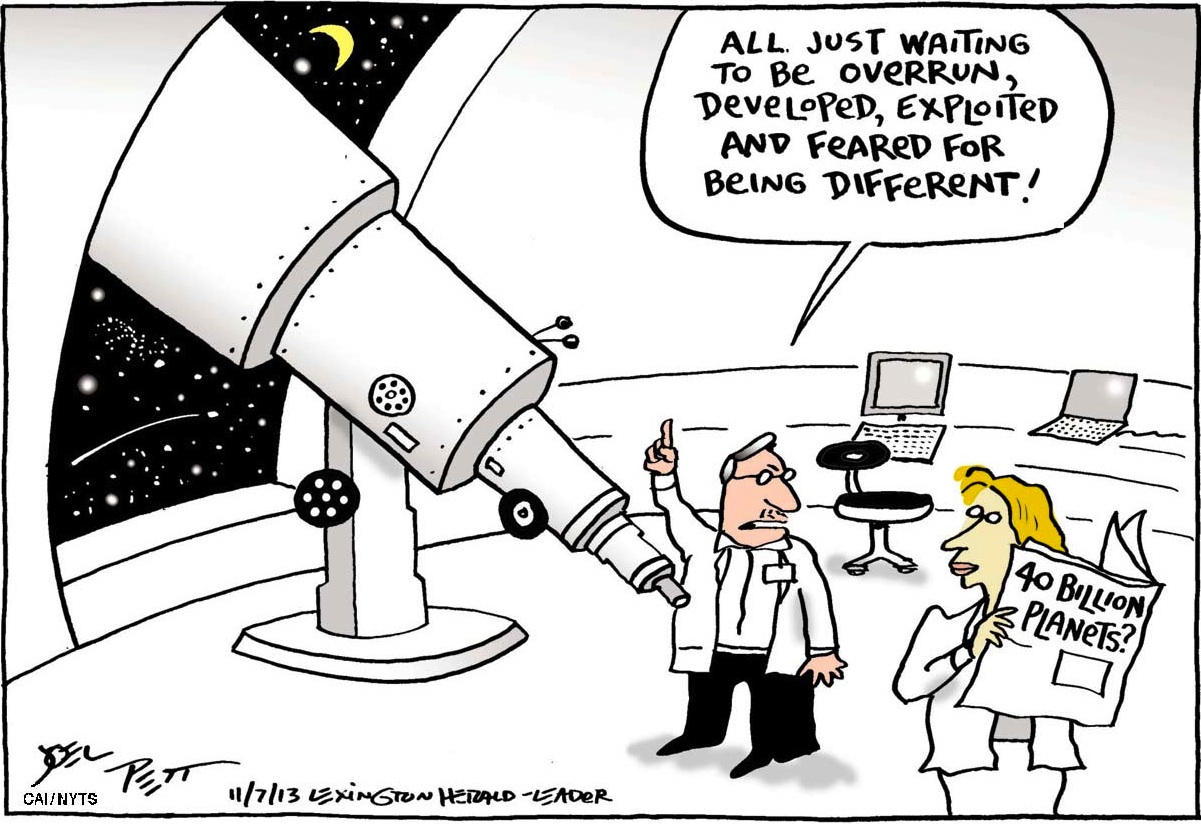No event is free of controversy these days — not even the discovery of seven habitable planets that hit the news late last month. For a few days, drawings of those tranquil spheres loomed above the tumult of earthly affairs — the presidential tweets, the protests, the botched Oscars. But then a friend, who happens to be trained as a biologist, wrote to me complaining that by declaring these worlds "habitable," NASA's PR people were promoting a space-exploration delusion.
He has a point. Like many people who follow astronomy, I'd started to take for granted that when astronomers say the word "habitable" they don't actually mean habitable — not in the sense most people use the word, to describe a place where you can go and not die instantly.
This is not to detract from the value of the discovery of seven Earth-sized worlds orbiting another star. At a distance of 40 light years, it is in our galactic neighborhood, so scientists have a shot at detecting atmospheres around the planets. The finding adds to a growing understanding that our galaxy is bursting with planets — astronomers estimate that most of the 100 billion stars in the Milky Way have at least one. But for all practical purposes, they are bad real estate.


















With your current subscription plan you can comment on stories. However, before writing your first comment, please create a display name in the Profile section of your subscriber account page.